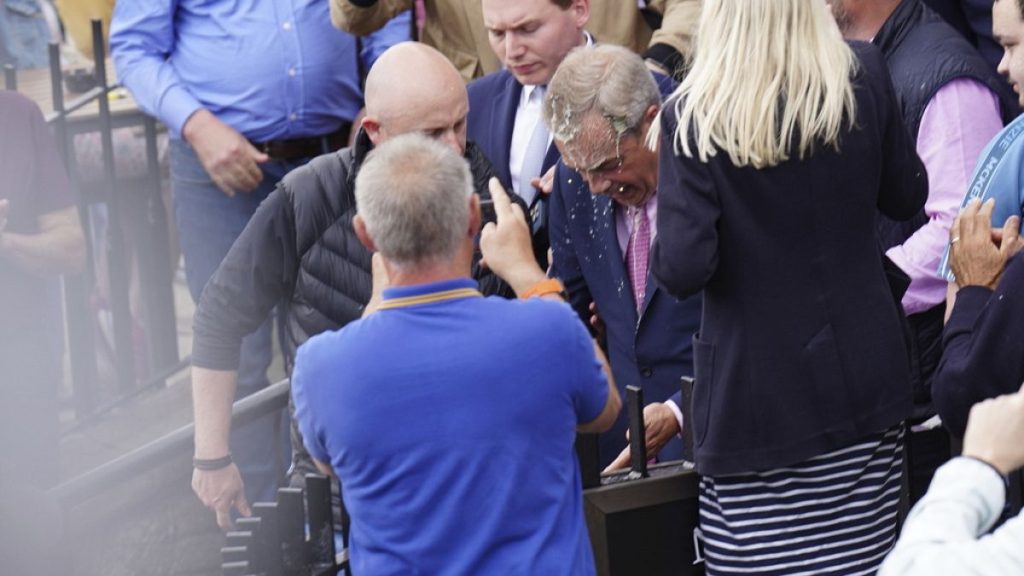Nigel Farage, a prominent Brexit-backer, was doused with a milkshake while campaigning for Britain’s July 4 general elections. The incident occurred as he left a pub in Clacton-on-Sea, where he had been speaking to the media. The attacker, a 25-year-old woman from Clacton, has been arrested for assault. Farage, known for his right-wing views and anti-EU stance, is making his eighth attempt at winning a seat in the House of Commons. Initially, he had stated that he would not be running in the election, but later announced his candidacy as the leader of the Reform UK party. This move is considered a setback for Conservative Prime Minister Rishi Sunak, whose party is trailing in opinion polls against the Labour Party.
Farage’s decision to enter the election race has sparked speculation about the impact it may have on the Conservative Party’s chances. It is believed that Farage and the Reform Party could attract votes from socially conservative older voters, who are often targeted by the Tories. Farage’s role in the Brexit referendum in 2016 has solidified his position as a significant figure in British politics, and his latest campaign is being closely watched by political observers. The incident of being pelted with a milkshake is not the first time Farage has faced such actions – he was previously targeted in a similar way during the European Parliament election campaign in 2019.
The incident involving Farage and the milkshake has rekindled debates about the rising trend of political violence and protests in the UK. Some view such actions as unacceptable and a threat to democracy, while others see them as a form of protest against politicians seen as divisive or inflammatory. Farage himself has been a polarizing figure, known for his controversial statements and positions on issues such as immigration, nationalism, and EU membership. His decision to run for office once again has reignited discussions about the future direction of British politics and the role of populist politicians in shaping public discourse.
The arrest of the woman who threw the milkshake at Farage has raised questions about the boundaries of political expression and dissent. While protesters have the right to voice their opinions and challenge the status quo, there are limits to how far they can go in expressing their discontent. Political candidates and public figures should be able to engage in campaigning without fear of physical harm or intimidation. The incident serves as a reminder of the need for respect and civility in political discourse, even in the face of strong disagreements and disagreements over policies and ideologies.
As Farage continues his campaign for a seat in the House of Commons, he will face scrutiny from both supporters and critics alike. His outspoken views and populist style have earned him a dedicated following, but also attracted criticism and controversy. The upcoming general election will test his ability to win over voters and make a significant impact on the political landscape in the UK. In a time of uncertainty and division, Farage’s campaign represents a challenge to the established political order and a call for change. Whether he will succeed in his bid for office remains to be seen, but one thing is certain – his presence in the election race will not go unnoticed.












